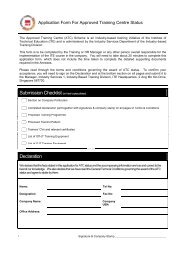Higher Nitec in Civil & Structural Engineering Design - Institute of ...
Higher Nitec in Civil & Structural Engineering Design - Institute of ...
Higher Nitec in Civil & Structural Engineering Design - Institute of ...
Create successful ePaper yourself
Turn your PDF publications into a flip-book with our unique Google optimized e-Paper software.
SCHOOL OF ENGINEERING<br />
COURSE STRUCTURE<br />
Module Title<br />
Module Code Credits<br />
GENERAL<br />
Communicative English (Level 1 to 8) - 3<br />
English Language ‘O’ I to IV -<br />
2 or 3<br />
Mathematics (Level 1 to 10) - 3<br />
Mathematics ‘O’ I to IV -<br />
2 or 3<br />
Overseas Experiential Programme EP29040 2<br />
Overseas Experiential Programme EP29050 3<br />
Overseas Experiential Programme EP39060 2<br />
Overseas Experiential Programme EP39070 3<br />
Overseas Work Attachment OWA29040 3<br />
Note: The <strong>of</strong>fer <strong>of</strong> electives is subject to the tra<strong>in</strong><strong>in</strong>g schedule <strong>of</strong><br />
respective ITE Colleges. Students are advised to check with<br />
their Class Advisors on the availability <strong>of</strong> the elective modules<br />
they <strong>in</strong>tend to pursue.<br />
MODULE OBJECTIVES<br />
Core Modules<br />
Electronics<br />
On completion <strong>of</strong> the module, students should be able to check and<br />
test <strong>in</strong>dustrial electronic components and simple electronic circuits<br />
us<strong>in</strong>g common test <strong>in</strong>struments; and construct prototype electronic<br />
project on pr<strong>in</strong>ted board.<br />
CAD and Mechanical Ma<strong>in</strong>tenance<br />
On completion <strong>of</strong> the module, students should be able to read,<br />
<strong>in</strong>terpret and produce geometrical, mechanical and electrical<br />
draw<strong>in</strong>gs us<strong>in</strong>g Computer-Aided Draft<strong>in</strong>g (CAD) s<strong>of</strong>tware; and<br />
fabricate metal parts accord<strong>in</strong>g to specifications <strong>in</strong> work<strong>in</strong>g draw<strong>in</strong>g<br />
and work samples and carry out ma<strong>in</strong>tenance to service, adjust and<br />
align mechanical elements.<br />
Electrical Installation<br />
On completion <strong>of</strong> the module, students should be able to carry<br />
out <strong>in</strong>stallation <strong>of</strong> light<strong>in</strong>g and power circuits safely and use test<strong>in</strong>g<br />
<strong>in</strong>struments for the ma<strong>in</strong>tenance <strong>of</strong> the <strong>in</strong>stallation.<br />
Fluid Power<br />
On completion <strong>of</strong> the module, students should be able to <strong>in</strong>stall,<br />
ma<strong>in</strong>ta<strong>in</strong> and troubleshoot pneumatic, electro-pneumatic, hydraulic<br />
and electro-hydraulic systems.<br />
Motor Pr<strong>in</strong>ciples and Controls<br />
On completion <strong>of</strong> the module, students should be able to <strong>in</strong>stall,<br />
ma<strong>in</strong>ta<strong>in</strong>, troubleshoot and modify AC and DC motor control<br />
circuits.<br />
Project<br />
On completion <strong>of</strong> the module, students should be able to work<br />
<strong>in</strong> groups to design and fabricate and commission a suitable<br />
mechatronics project.<br />
Specialisation Modules<br />
Industrial Automation<br />
On completion <strong>of</strong> the module, students should be able to carry out<br />
<strong>in</strong>stallations, operations and troubleshoot<strong>in</strong>g <strong>of</strong> <strong>in</strong>dustrial automation<br />
system compris<strong>in</strong>g programmable logic controller, process control<br />
<strong>in</strong>struments and robots.<br />
Electronics and Microcomputer<br />
On completion <strong>of</strong> the module, students should be able to repair<br />
a microcomputer system at card or module level, <strong>in</strong>stall and test<br />
control cards/peripheral devices <strong>in</strong>clud<strong>in</strong>g network <strong>in</strong>terfac<strong>in</strong>g card,<br />
and construct a simple prototype <strong>in</strong>dustrial electronic circuit.<br />
Life Skills Modules<br />
Life skills <strong>in</strong> broad terms are the foundation skills and personal<br />
qualities that an <strong>in</strong>dividual can transfer from one job sett<strong>in</strong>g to<br />
another to manage and adapt to changes <strong>in</strong> technology and work<br />
environments.<br />
Electives (Course Specific)<br />
Advanced PLC Applications<br />
On completion <strong>of</strong> the module, students should be able to <strong>in</strong>stall and<br />
troubleshoot a PLC-controlled production system.<br />
Microcontroller Applications<br />
On completion <strong>of</strong> the module, students should be able to program<br />
<strong>in</strong> assembly language and <strong>in</strong>terface microcontroller with external<br />
devices.<br />
277



![[CHOICE] - Institute of Technical Education](https://img.yumpu.com/23578991/1/184x260/choice-institute-of-technical-education.jpg?quality=85)

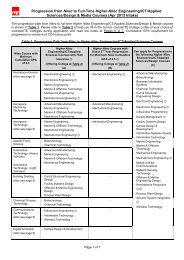

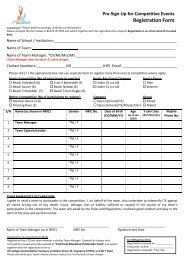
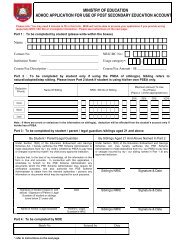
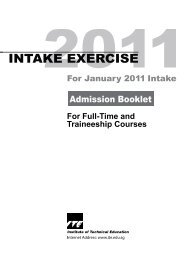
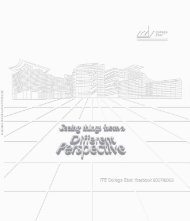


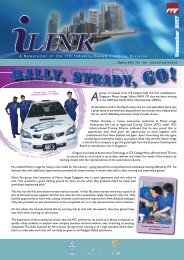
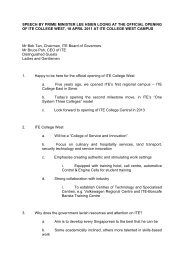
![FAQs for Full-time Nitec Jan 2012 Intake [JIE 'N']](https://img.yumpu.com/23578955/1/190x245/faqs-for-full-time-nitec-jan-2012-intake-jie-n.jpg?quality=85)
